Referendum and presidential election in Moldova, October-November 2024
Florent Parmentier
Secrétaire général, CEVIPOF / Sciences Po (Paris)Issue
Issue #5Auteurs
Florent Parmentier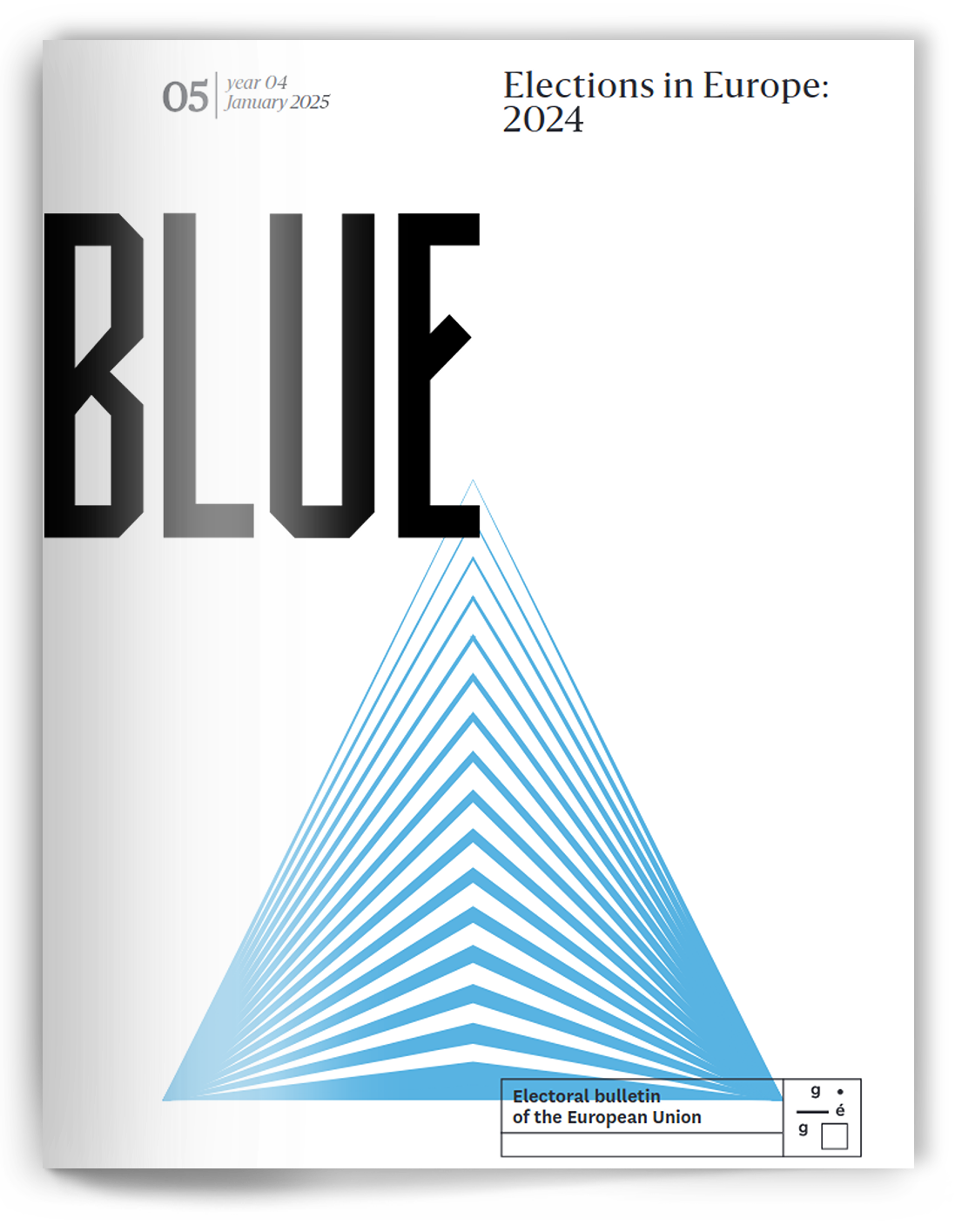
Issue 5, January 2025
Elections in Europe: 2024
Moldova experienced an intense election period in the fall of 2024. A constitutional referendum was held on October 20, and the two rounds of the presidential election took place on October 20 and November 3. With a population of 2.6 million and a significant diaspora, the country voted two years after the start of the war in Ukraine, with which it shares a 939-kilometer border. These elections revealed the internal political dynamics and external influences that will shape the country’s future. The referendum aimed to enshrine Moldova’s European orientation in its constitution. In the presidential contest, Maia Sandu, a strong proponent of EU integration, was reelected. This analysis explores the issues, strategies, and geopolitical influences that shaped these elections.
The 2024 referendum: suspense until the end of the night
The Moldovan constitutional referendum aimed to enshrine the country’s European orientation in its constitution. Specifically, the amendment defined EU integration as a “strategic objective” and recognized the “European identity of the people of the Republic of Moldova.” The referendum was of major political importance as a symbolic affirmation of the country’s rapprochement with the EU and as a test of its ability to build a democratic consensus on its strategic future.
For the referendum to be considered valid by the Constitutional Court, it needed to obtain a majority of votes with a turnout of at least one-third of the electorate. According to data from the Central Electoral Commission, the referendum passed with 50.4% of the vote, just above the required threshold. This allowed the text to be adopted by a narrow margin. The much closer-than-expected result surprised observers and the pro-European camp, which had expected a more substantial win. A defeat could only be averted thanks to votes from the diaspora.
The “yes” camp led the election campaign, supported by President Maia Sandu and several pro-European parties. As expected, several parties called for a boycott of the vote or campaigned for a “no” vote. These included the Party of Socialists of former President Igor Dodon and the Party for the Development and Consolidation of Moldova (PDCM) of former Prime Minister Ion Chicu, with the latter calling for a boycott of the referendum.
The results revealed significant polarization, with regions like Gagauzia voting resoundingly against European integration (95% opposed). Electoral geography showed signs of continuity with previous parliamentary elections in terms of regional preferences, reflecting a high level of polarization, particularly in terms of geopolitical orientation (Parmentier, 2024b). The diaspora played a decisive role in the outcome, within 77% of the approximately 235,000 diaspora voters voting in favor. Ultimately, the “no” vote was only dominant among Moldovans living in Russia, Turkey, Israel, and Bulgaria.
Russia sought to delegitimize the referendum by combining direct challenges to its results with narrative manipulation and questioning of electoral mechanisms. Russian Foreign Ministry spokesperson Maria Zakharova publicly claimed that the Moldovan authorities, particularly President Maia Sandu, had falsified the results (Kirillov, 2024). Moscow also criticized the voting conditions for Moldovans living abroad, a group largely in favor of European integration.
In contrast, European and American allies supported the process, denouncing Russian interference and emphasizing Moldova’s commitment to democracy and the rule of law. By supporting Moldova’s application for membership and granting it candidate country status, the European Parliament gave further endorsed Moldova’s European path. For the OSCE, the European Parliament, and the High Representative of the European Union, the strategy for legitimizing the referendum is based on recognizing the validity of the vote despite external challenges, supporting Moldova’s sovereignty, and committing to resisting foreign attempts at destabilization.
2024 Moldovan presidential election: Maia Sandu’s new victory
In November 2024, Maia Sandu was re-elected with a clear majority, receiving 55.3% of the vote in the second round against Alexandre Stoianoglo. A former member of Parliament (2009–2014), Sandu’s contender Stoianoglu was supported by the Party of Socialists. Sandu’s victory contrasts with her low levels of support among certain segments of society, particularly in the pro-Russian regions of northern and southern Moldova. In the first round, 51.4% of voters turned out, and Sandu won 42.5% of the vote, while her opponent won 26%. Stoianoglo came in second, ahead of Renato Usatîi (Our Party, 13.8%), who did not issue voting instructions, and Gagauz independent candidate Irina Vlah (5.4%). The other seven candidates each obtained less than 5%.
Turnout increased in the second round of the 2024 presidential election, with 54.3% of voters casting their ballots, compared to 52.7% in the second round of the 2020 presidential election. Despite the challenges she faced during her previous term, Maia Sandu received nearly the same number of votes as in 2020 (930,000 in 2024 versus 943,000 in 2020). Electoral geography revealed significant divisions: regions such as Gagauzia (97%), the Bulgarian district of Taraclia (94%), and Transnistria (79.4%) voted overwhelmingly for Stoianoglo. Against all odds, Stoianoglo won Moldova with 51.2% of the vote. In contrast, Sandu won 57% of the vote in Chișinău and the surrounding areas, including the Nisporeni district (69.3%) and the Ialoveni district (75.5%). Sandu also secured an impressive 82.8% of the 328,000 votes cast by Moldovan expatriates (out of 1,695,000).
During the campaign, Maia Sandu and Alexandre Stoianoglo had heated debates about judicial reform. President Sandu is known for her personal integrity and commitment to reforming the rule of law. Nevertheless, Stoianoglo criticized her for her lack of progress on this issue. Stoianoglo, a former prosecutor general, presented himself as a victim of the current administration and capitalized on discontent with Sandu’s presidency. Sandu, for her part, lamented the lack of progress on major corruption cases, including the “stolen billion” case from 2014, when Stoianoglo was prosecutor general.
The figure of pro-Russian oligarch Ilan Șor, who flew to Russia in April 2019, loomed large over the election campaign. The election campaign was indeed marked by significant Russian interference, with accusations of vote rigging and buying, allegedly orchestrated by Ilan Șor himself. Șor was involved in a massive vote-buying scandal during the presidential election that affected up to 130,000 people according to police reports. Veronica Dragalin, chief prosecutor of the Anti-Corruption Prosecutor’s Office, denounced an attempt to rig the elections, claiming that millions of dollars were sent from Russia to Moldova to bribe voters (Infotag, 2024b).
European and American officials denounced the Russian interference, emphasizing that these activities undermine the legitimacy of the electoral process and Moldova’s political stability. White House spokesperson John Kirby stated that tens of millions of dollars were invested monthly in nonprofit organizations that spread narratives aligned with Russian interests (Infotag, 2024a). The OSCE emphasized that election campaigns in Moldova took place amid heightened threats to national security exacerbated by the war in Ukraine and Russian interference.
Conclusion
The results of Moldova’s 2024 presidential election and referendum reveal a deeply polarized society with significant geopolitical and regional divisions. Maia Sandu’s reelection and the referendum’s approval of European integration are victories for the pro-European camp. However, these successes were overshadowed by accusations of interference and manipulation. In the coming years, Moldova must navigate an increasingly complex geopolitical context amid Russian, American, and Romanian political dynamics. The country faces internal and external challenges as it consolidates its European trajectory and strengthens its democratic institutions. Ultimately, these elections underscore the importance of robust institutional frameworks to safeguard electoral processes and of inclusive communication that unites citizens behind a shared vision.
The data
Presidential election: first round
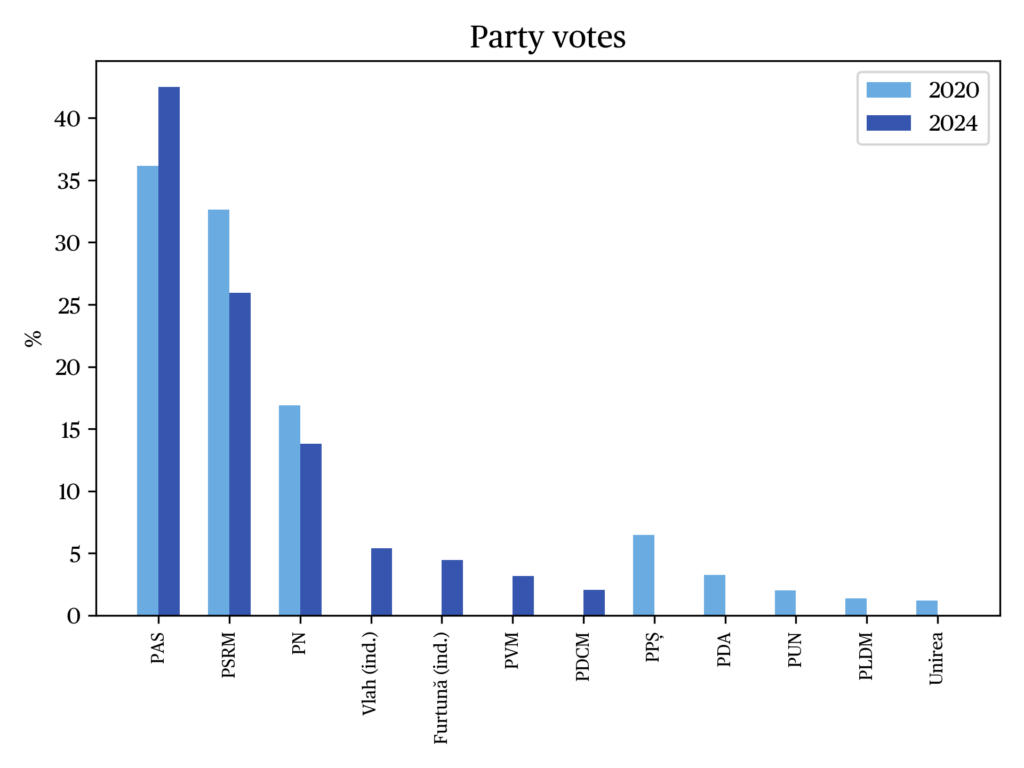
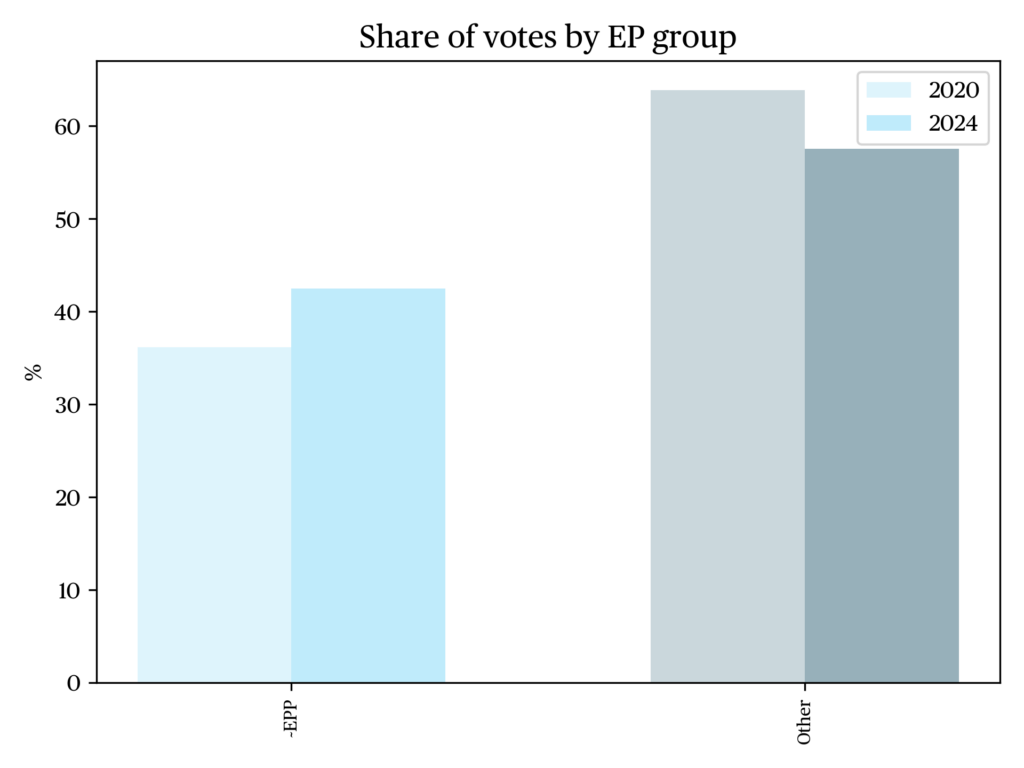
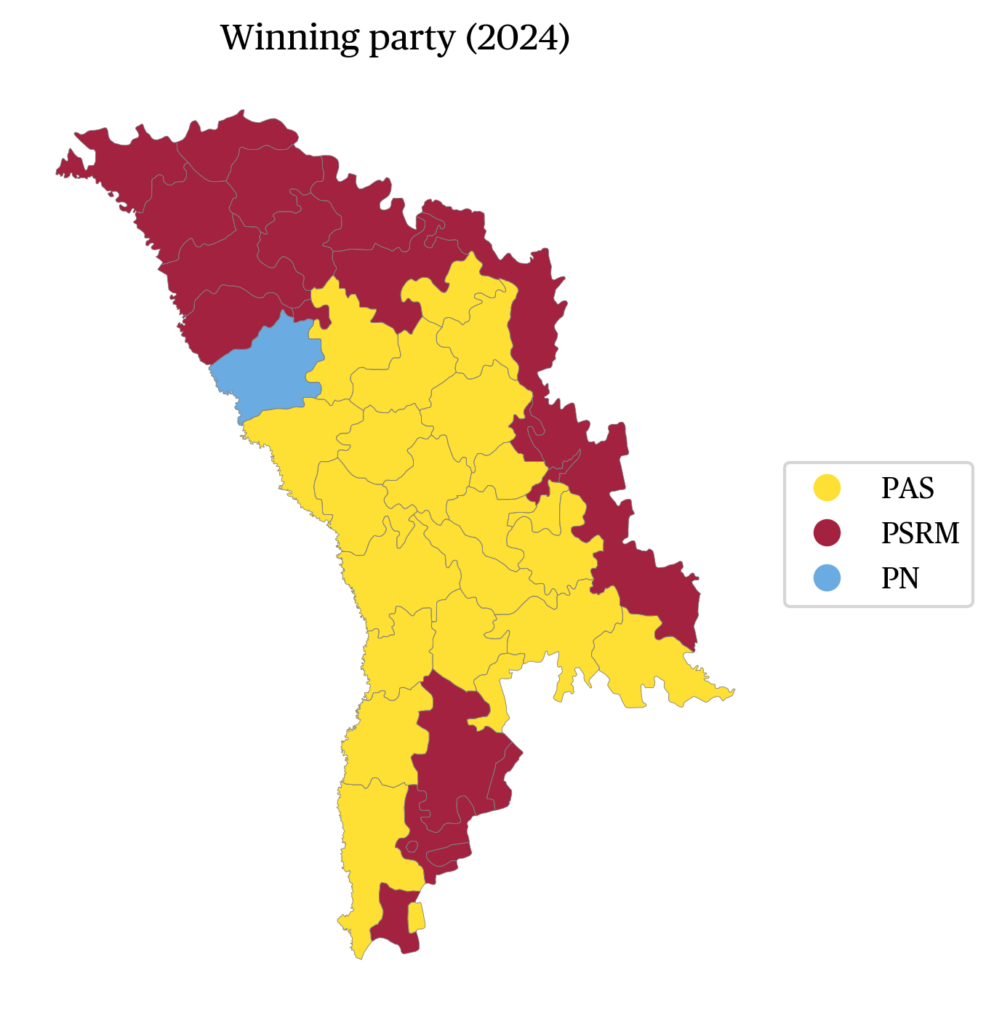
Presidential election: second round
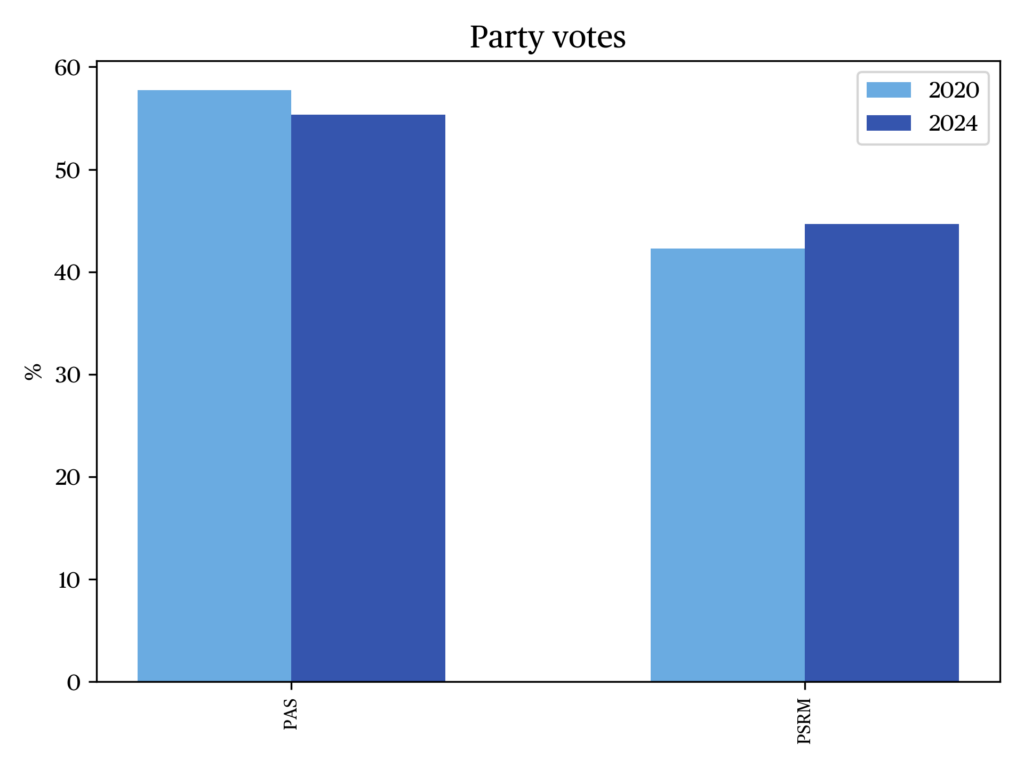
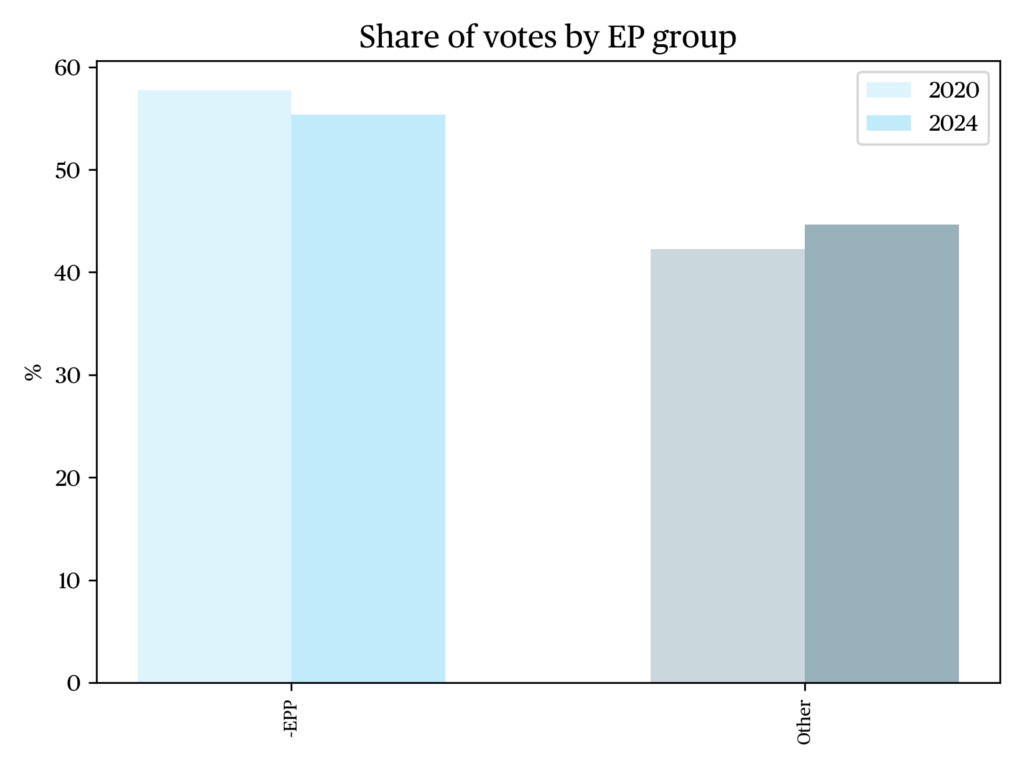
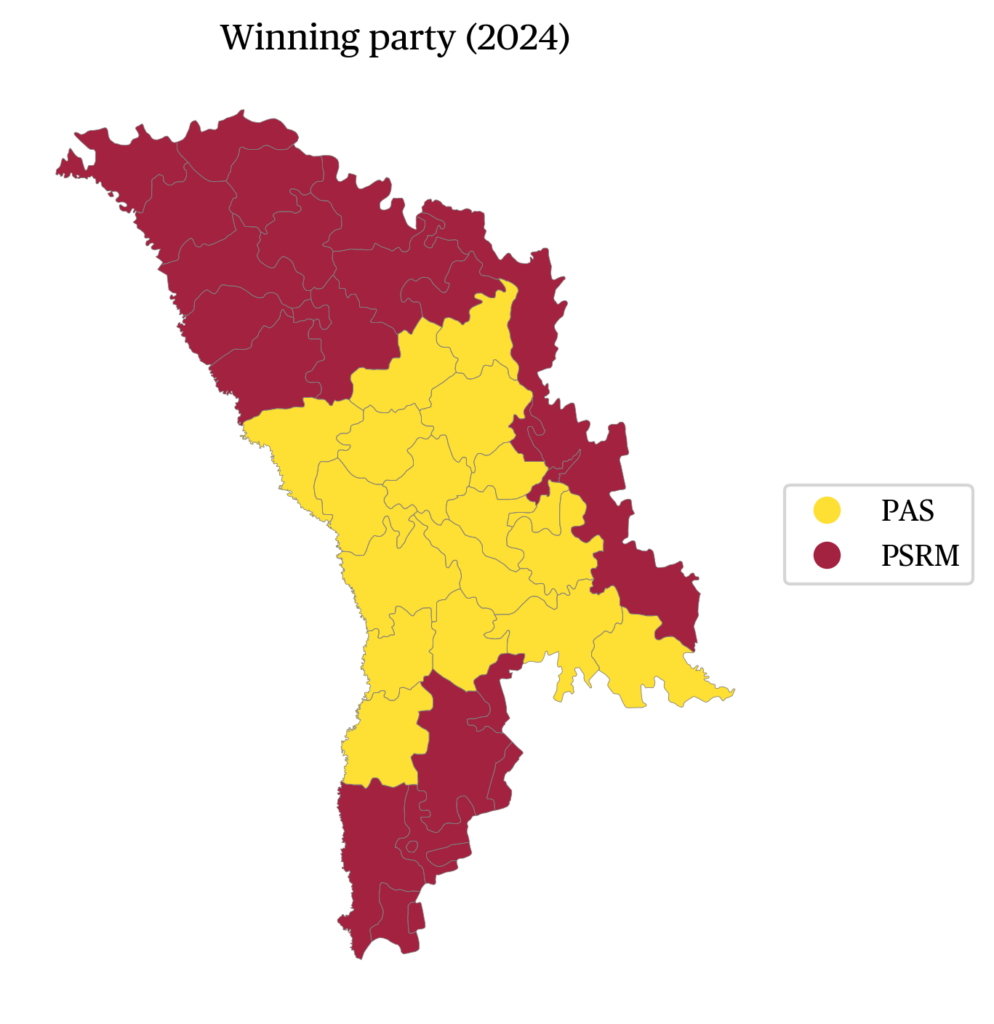
Referendum
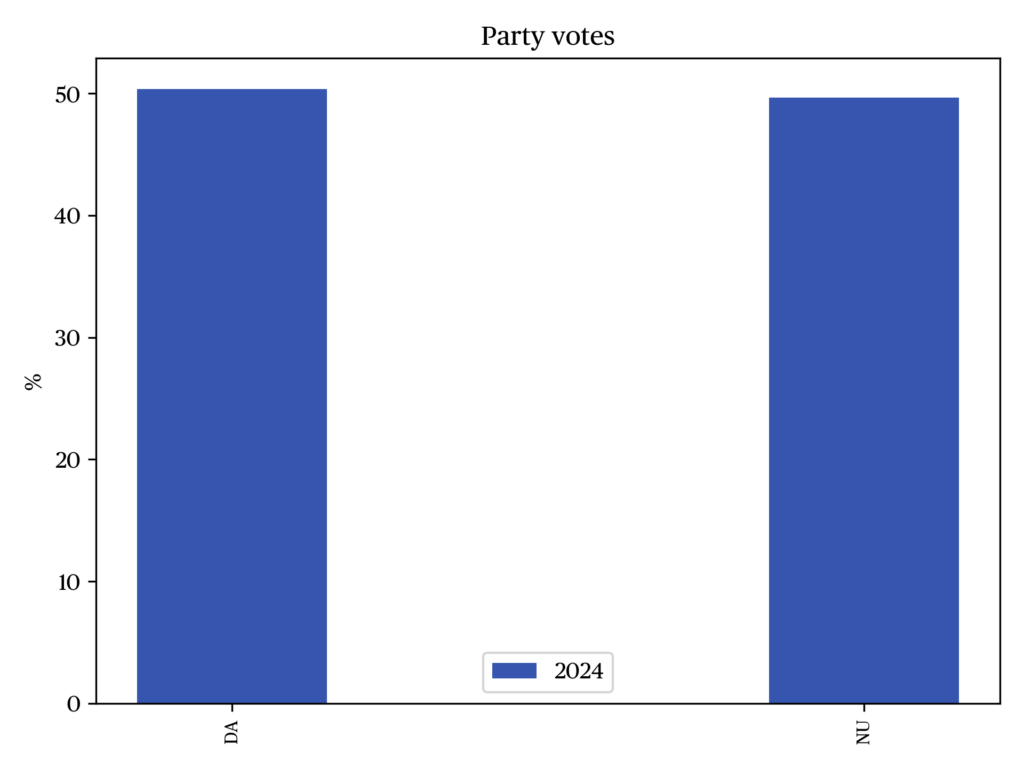
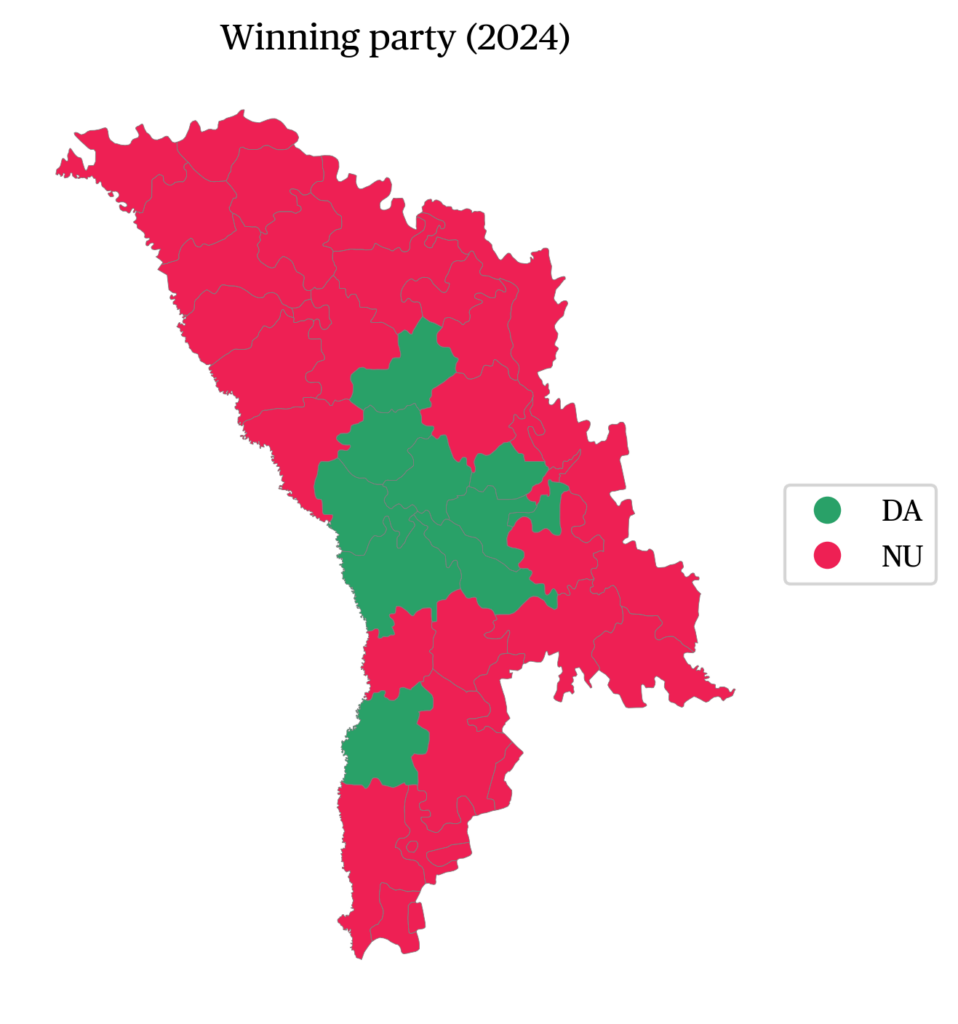
References
Infotag (2024a, 16 October). John Kirby: Russia seeks to disrupt the Moldovan election process. Infotag.
Infotag (2024b, 23 October). Head of anti-corruption prosecutor’s office says investigation into voter corruption case continues. Infotag.
Kirillov, M. (2024, 22 October). «Сеяли страх и панику» Молдавия проголосовала за вступление в ЕС. Почему половина страны с этим не согласилась? Lenta.ru.
Parmentier, F. (2024a, 22 October). Moldavie : après une victoire étriquée au référendum sur l’Union, le spectre du « syndrome Gorbatchev ». Le Grand Continent.
Parmentier, F. (2024b, 4 November). Moldavie : que cache la réélection de Maia Sandu ? Le Grand Continent.
citer l'article
Florent Parmentier, Referendum and presidential election in Moldova, October-November 2024, Sep 2025,
à lire dans cette issue
voir toute la revue





